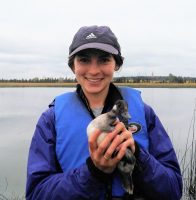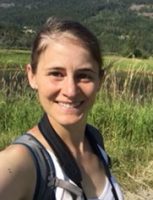Critical Habitat Screening Workshop
- Start Date: November 19, 2019
- End Date: November 19, 2019
- Time: 8:30am - 4:00pm
- City: Kimberley BC
- Venue: Kimberley Conference Centre
- Instructor: various, see below
Workshop Description
Habitat loss and modification are leading causes of population decline in many rare and endangered species. The federal Species At Risk Act (SARA) describes Critical Habitat (CH) as the habitat that is necessary for the survival or recovery of a listed wildlife species (schedule 1), and that is identified as the species’ critical habitat in a recovery strategy or in an action plan for the species. Many projects now require screening for critical habitat (CH) as part of the impact assessment process.
In the morning, Katrina Stipec with the the BC Conservation Data Centre (CDC) will give an overview of the CDC and will demonstrate two online applications relevant to CH screening: BC Species and Ecosystems Explorer and the CDC iMAP.
An update (via a remote presentation) will be provided on the BC Species and Ecosystems at Risk Local Government Working Group by Lynn Campbell with the BC Ministry of Environment and Climate Change Strategy.
In the afternoon this workshop will provide tools and methods for screening for CH, in addition to an overview of the Migratory Birds Convention Act and guidance on measures to mitigate incidental take by Celina Willis and Chloe Boynton. This portion of the workshop will include how to obtain CH mapping information; how to determine if one has the most current CH information for a given species; how Species at Risk (SAR) legislation is applied (for example, in the case of migratory birds that are also species at risk); and how to determine if a SAR or Migratory Birds Regulation (MBR) permit is required. Participants will learn about the different jurisdictional issues affecting federal versus non-federal lands. They will have the opportunity to “workshop,” in group sessions, through mock scenarios with species at risk and migratory birds to determine when a permit is required under SARA or the MBR and how to apply for the necessary permit.
Workshop lead by:

Katrina Stipec, BC Conservation Data Centre, Ministry of Environment and Climate Change Strategy
Katrina completed her BSc in Geography from University of Victoria. Since then she has worked for non-profit organisations, regional, federal and the provincial government in various fields that have included Sensitive Habitat Inventory and Mapping, support in the fields of forestry, transportation, mining and numerous environmental values.
She has worked with the BC Conservation Data Centre since 2005, and has made it her focus to help clients access BC species and ecosystems data and information. Katrina can be reached at Katrina.Stipec@gov.bc.ca
 Lynn Campbell, Species at Risk Biologist with the Ministry of Environment and Climate Change Strategy
Lynn Campbell, Species at Risk Biologist with the Ministry of Environment and Climate Change Strategy
Lynn Campbell received her BSc in Pure and Applied Ecology from the University of Guelph and began working on species at risk during undergrad university years. Some exciting field work opportunities led her to working on BC’s remote coasts, Australia, California and Scotland. Vancouver Island Marmots, Marbled Murrelets, Harlequin Ducks and Ring Ouzels offered the best habitat selection based on scenery. In Scotland, Lynn completed her Masters at University of Edinburgh and worked as a Scottish Local Biodiversity Action Plan Coordinator for Clackmannanshire Council. She began working for the BC Ministry of Environment in 2005 and has been working on species and ecosystems at risk on private and local government lands for 10 years. Lynn can be reached at Lynn.Campbell@gov.bc.ca
 Celina Willis, Canadian Wildlife Service, Environment and Climate Change Canada
Celina Willis, Canadian Wildlife Service, Environment and Climate Change Canada
Celina is a Conservation Project Development Officer with Canadian Wildlife Service – Environment and Climate Change Canada in the Pacific Region. She graduated with a Bachelor of Science (honours) from Queen’s University in 2013 and a Masters of Resource and Environmental Management from Simon Fraser University in 2018. She has experience working with migratory songbirds across Canada as well as working in resource management with First Nations in British Columbia. She began working with the Canadian Wildlife Service in 2017 and currently works in the Conservation Planning Unit where she focuses on consultation and engagement on species at risk, including proposed species at risk listing amendments and recovery documents. She previously worked in the Regulatory Affairs Unit of Canadian Wildlife Service as a Treaty Negotiation Analysist. Celina can be reached at celina.willis@canada.ca

Chloe Boynton, Canadian Wildlife Service, Environment and Climate Change Canada
Chloe Boynton is a Migratory Bird Management Biologist with Canadian Wildlife Service, Environment Climate Change Canada, in the Pacific Region. She graduated with a Bachelor of Science (honours) from Queen’s University in 2013, and a Master of Science from Simon Fraser University in 2017. Throughout her career she has worked with a variety of migratory songbirds, from mapping territories of forest birds in Ontario and nest searching for grassland birds in Alberta, to studying aerial insectivores here in the Lower Mainland. She has worked with Environment and Climate Change Canada in several capacities over the last 4 years, including work with the funding programs, conducting research for the Science and Technology branch and most recently working with migratory birds and the Migratory Birds Convention Act. Chloe can be reached at chloe.boynton@canada.ca
Workshop schedule:
Click HERE to see the workshop schedule.
This course has been approved by the Society for Ecological Restoration (SER) as a for-credit course! Students will earn 5 continuing education credits with SER’s Certified Ecological Restoration Practitioner (CERP) program.
Who should attend?
This workshop will be of interest to consultants and government and regional district employees involved in projects requiring critical habitat screening.
Registration
Member: $180*
Non-member: $210
*Individual memberships for 2019 are $40 and can be purchased within the registration form.
Registration includes catered coffee breaks and lunch.
Registration now closed
Preparation and what to bring
- Pen and notebook (All paper materials and copies of the presentations will be provided)
- Laptop (to practice using the on-line tools)
Where to stay
We have set up a discounted room block at the Trickle Creek Lodge. This lodge is on-site and will take you just a few mins to walk to the Kimberley Conference Centre. When booking, note that you are with CMI to get the discounted rates. For rates and booking instructions, see HERE.


